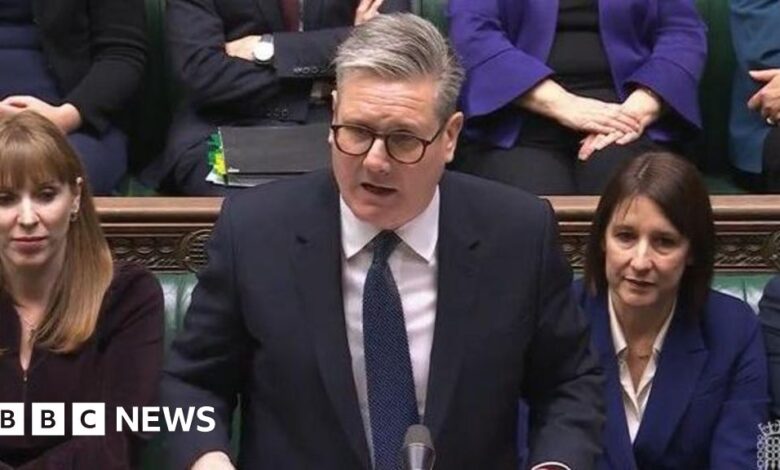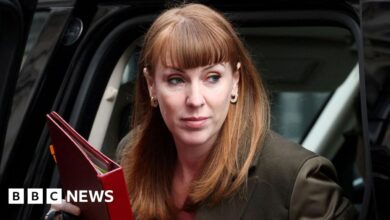Keir Starmer refuses to give more details of Louise Haigh resignation

Sir Keir Starmer has refused to give more information about why Louise Haigh resigned as transport secretary last week.
Haigh stepped down after it emerged she had pleaded guilty to a fraud offence a decade ago, a conviction she reportedly told Sir Keir about in 2020, when he appointed her to his shadow cabinet.
During Prime Minister’s Questions, Conservative leader Kemi Badenoch asked why the prime minister had appointed a “convicted fraudster” as his transport secretary.
Sir Keir said Haigh had been right to resign “when new information came to light”.
But, when asked by Badenoch for details about the new information, he replied: “I’m not going to disclose private information.”
He added that Haigh’s swift resignation was a “marked contrast” to the behaviour of the previous Conservative government and accused Badenoch of being “obsessed with the Westminster issues”.
Badenoch said the prime minister was “obfuscating” and that he owed MPs “an explanation”.
“The country needs conviction politicians not politicians with convictions,” she said.
Hitting back, Sir Keir said two of Badenoch’s predecessors had “convictions”, a reference to Boris Johnson and Rishi Sunak, who both received fixed penalty notices for breaking Covid rules.
Fixed penalty notices are not classed as criminal convictions, provided the fine is paid on time.
Later, responding to Badenoch’s questions, a Labour source said: “If the Conservatives want to have a row about the extent of their criminality in office, that’s fine by us.
“The fact is that her two predecessors were found guilty of breaking the law, partying in Downing Street while telling everyone else to follow the rules, something which the leader of the opposition described just a few weeks ago as ‘overblown’. Maybe she’ll want to retract that statement.”
Last week, Haigh became the first minister to resign since the Labour government took office in July.
On Thursday evening, Sky News and The Times revealed details of her past conviction.
Haigh subsequently issued a statement giving further details of the incident, which took place in 2013 when she was working for insurance company Aviva.
She said she had reported a mugging to the police and that a work mobile phone was one of the items that had been stolen.
She later said she found the handset in a drawer at home.
Turning on the phone “triggered police attention”, she said, and the matter was taken to magistrates’ court for making a false report to police.
Haigh said: “Under the advice of my solicitor I pleaded guilty – despite the fact this was a genuine mistake from which I did not make any gain.”
She received a conditional discharge six months before becoming an MP in the 2015 general election.
Early on Friday, the morning after the details of the conviction emerged, Haigh sent a resignation letter to the prime minister, saying she did not want to become a distraction.
The BBC has been told by Whitehall sources that she had told Sir Keir about her conviction when he picked her to be in his shadow cabinet in 2020.
She did not tell the government’s propriety and ethics team about it when she became a member of the cabinet after Labour won July’s general election.
She believed it was sufficient to have disclosed her spent conviction to Sir Keir when Labour was in opposition, the BBC has been told.
On Friday, a Downing Street spokesperson refused to say what Sir Keir knew about the conviction, only that he accepted her resignation after “further information” emerged.
The spokesperson was questioned for 25 minutes on the issue but refused to give more details.
A regular briefing with journalists after Wednesday’s Prime Minister Questions was no different, with a Labour spokesperson present simply saying they would not get into “private discussions with former cabinet ministers”.
However the BBC understands that some in Downing Street were unhappy Haigh had not run her explanation past them before releasing it to the media on Thursday and felt she should have told senior civil servants about the conviction on becoming a minister.
On Wednesday, Badenoch’s spokesperson said: “It’s not good enough to say this is a private matter.”
“Did he know about the criminal conviction and put her in the Cabinet anyway? Or did he not and that is why he fired her on Friday?
“He has not come clear with the public. This is a serious matter.”




